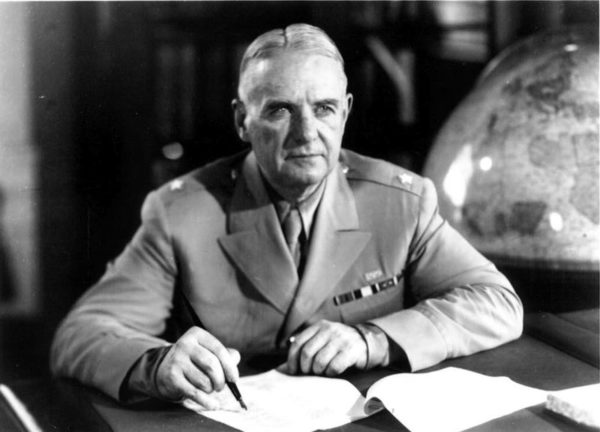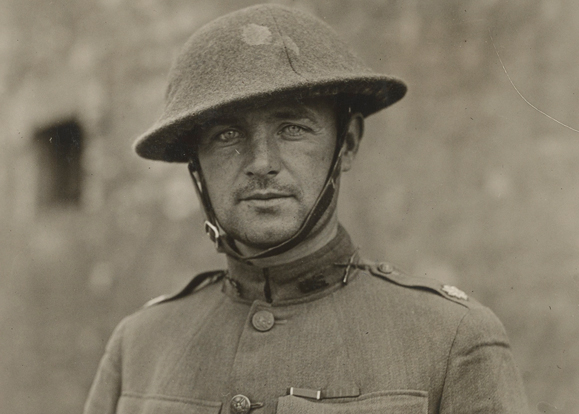After the war, Father Duffy kept up the pressure on Washington to upgrade Donovan’s Distinguished Service Cross to the Medal of Honor. And five years later, in 1923, he succeeded. Donovan was awarded the Medal of Honor in New York City. In a move that speaks volumes about the men of the unit and how they felt about him, the ceremony was attended by over 4,000 veterans.
By the end of World War I, Donovan was arguably the most decorated man in U.S. military history at that time. He had been awarded all of the top awards for bravery in combat: the Medal of Honor, the Distinguished Service Cross, the Distinguished Service Medal, and the Silver Star.
Donovan would forever earn the respect of his men when he refused to keep his Medal of Honor. He stated that the medal belonged not to him but “to the boys who are not here, the boys who are resting under the white crosses in France or in the cemeteries of New York, also to the boys who were lucky enough to come through.”
Hollywood later made “The Fighting 69th” about the Meuse-Argonne Offensive and the heroism of Donovan. The film stars James Cagney, Pat O’Brien as Father Duffy, and George Brent as Major Donovan.

Medal of Honor citation:
“Rank and organization: Lieutenant Colonel, U.S. Army, 165th Infantry, 42d Division. Place and date: Near Landres-et-St. Georges, France, 14–15 October 1918. Entered service at: Buffalo, N.Y. Born: 1 January 1883, Buffalo, N.Y. G.O., No.: 56, W.D., 1922.
Lt. Col. Donovan personally led the assaulting wave in an attack upon a very strongly organized position, and when our troops were suffering heavy casualties he encouraged all near him by his example, moving among his men in exposed positions, reorganizing decimated platoons, and accompanying them forward in attacks. When he was wounded in the leg by machine-gun bullets, he refused to be evacuated and continued with his unit until it withdrew to a less exposed position.”
Several years later, Donovan was contacted by his old Columbia classmate and then-U.S. president, Franklin Delano Roosevelt. Despite being on completely opposite sides of the political spectrum, the two had remained close friends. Roosevelt asked Donovan to meet with King George VI and Winston Churchill and report on what was happening in Europe as he was certain that the U.S. was going to be dragged into the war.
The U.S. Ambassador to Great Britain, Joseph P. Kennedy’s assessment was that Great Britain was finished and would capitulate to Hitler. Donovan’s assessment was much more optimistic: He urged Roosevelt to provide resources to assist the beleaguered nation. Roosevelt trusted Donovan’s opinion more than Kennedy’s. As a result, the U.S. began sending war equipment to Britain through the Lend-Lease program.
On the eve of the United States’ entry into the war, the country had a non-existent national intelligence network. FDR knew that the United States needed one — not only for the coming war but for the years to come. He appointed Donovan first as the “Coordinator of Information” and then in 1942 as the commander of the OSS.
Donovan’s “glorious amateurs,” as he called them, grew to be huge contributors to the war effort. He once said that OSS wanted “PhDs that can win a bar fight.” The OSS’s ranks from WWII would later become the core element of the new CIA, and the Army’s Special Forces (Green Berets).
And as Paul Harvey said, and now you know the rest of the story.










COMMENTS